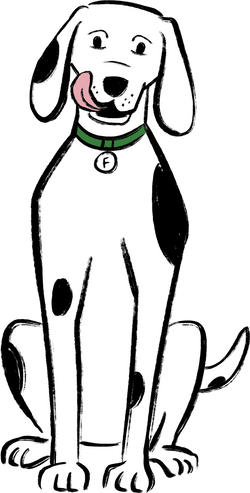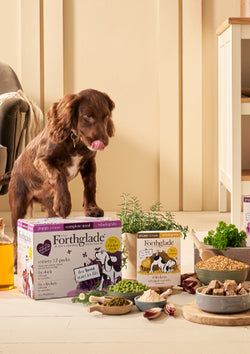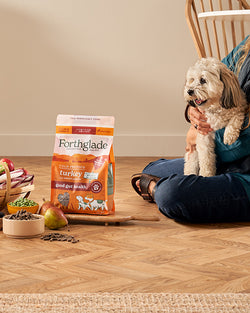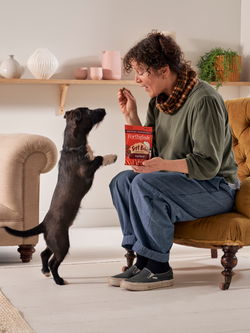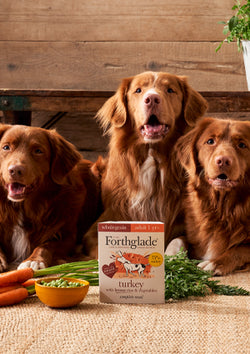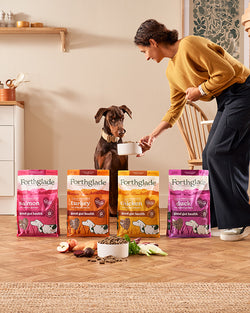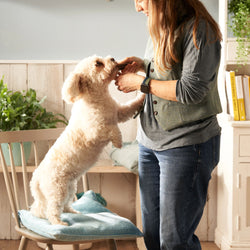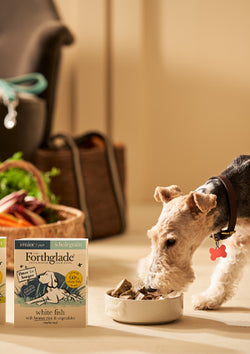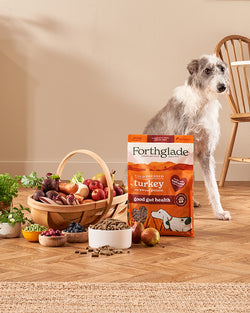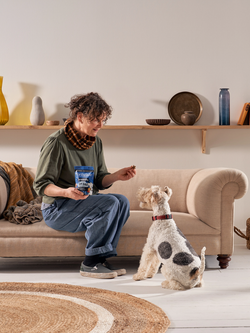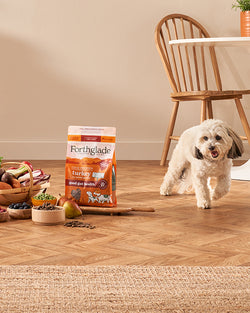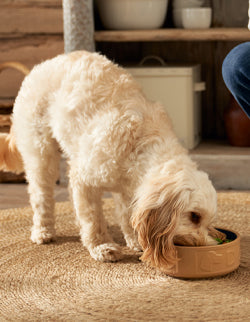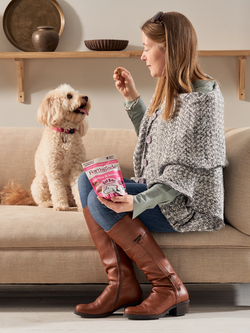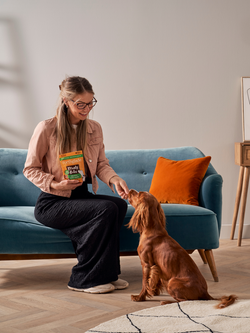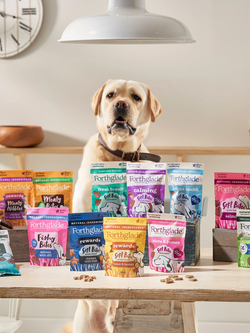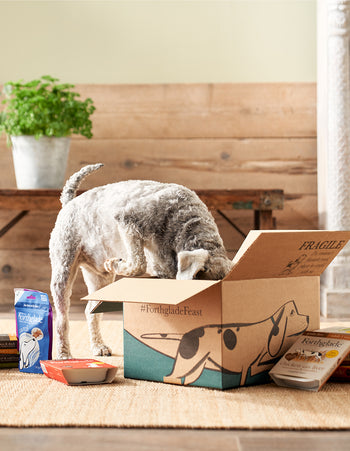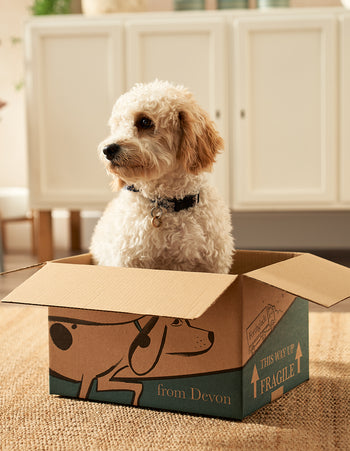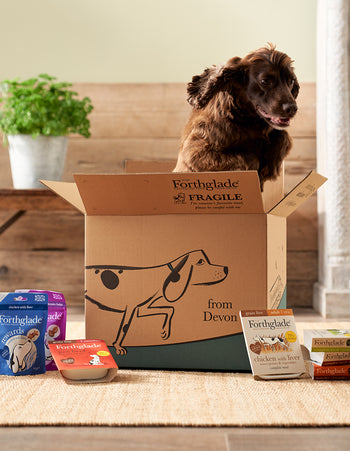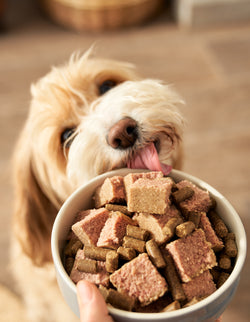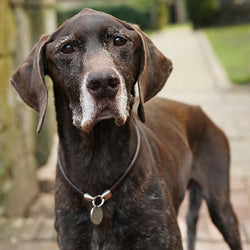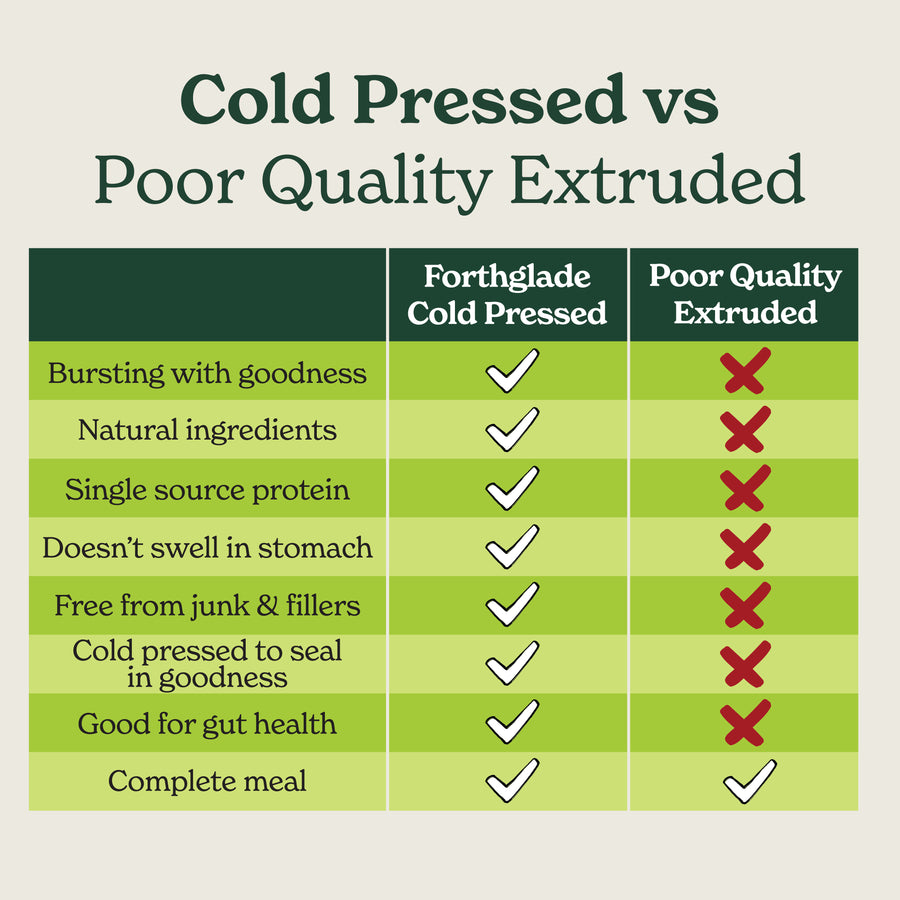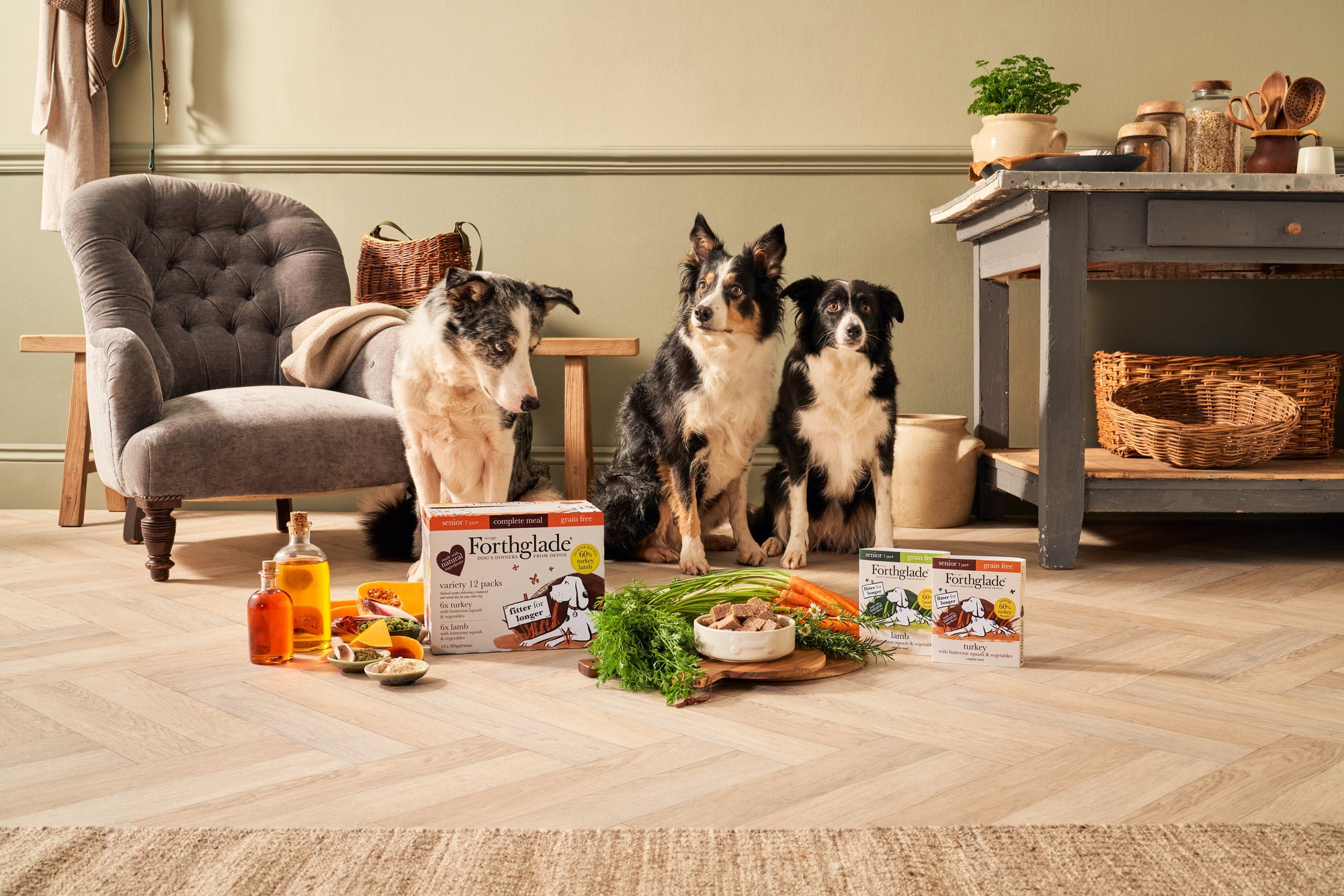Our feeding advice is here to help you, but no one knows your four-legged friend better than you do - so you should tailor the amount you feed based on your dogs' individual lifestyle.

Feeding Advice
As a general rule, if your dog is very active you may want to consider feeding more and likewise if your pup isn't very active you may want to consider feeding less. If you're using Forthglade for the first time, as with all new foods it's important that you gradually introduce it over a period of around 5 days to avoid any unnecessary tummy upset. As always, please make sure your canine companion always has access to fresh drinking water.
Wet Food
| Dog size | Dog weight | Trays per day (395g tray) |
| Small | 0-10kg | 1/2 - 1 1/4 |
| Medium | 10-25kg | 1 1/4 - 1 3/4 |
| Large | 25-40kg | 1 3/4 - 2 1/4 |
| Extra Large | 40-70kg | 2 1/4 - 3 1/4 |
| Dog size | Dog weight | Trays per day (395g tray) |
| Small | 0-10kg | 1/2 - 1 1/4 |
| Medium | 10-25kg | 1 1/4 - 1 3/4 |
| Large | 25-40kg | 1 3/4 - 2 1/4 |
| Extra Large | 40-70kg | 2 1/4 - 3 1/4 |
| Dog size | Dog weight | Trays per day (395g tray) |
| Small | 0-10kg | 1/2 - 1 1/4 |
| Medium | 10-25kg | 1 1/4 - 1 3/4 |
| Large | 25-40kg | 1 3/4 - 2 1/4 |
| Extra Large | 40-70kg | 2 1/4 - 3 1/4 |
Dry Food
| Dog Weight | Grams Per Day |
| 3-5kg | 65-105 |
| 5-10kg | 105-175 |
| 10-20kg | 175-295 |
| 20-30kg | 295-400 |
| 30-40kg | 400-495 |
| 40-50kg | 495-585 |
| 50-60kg | 585-670 |
| Dog Weight | Grams Per Day |
| 3-5kg | 55-85 |
| 5-10kg | 85-140 |
| 10-20kg | 140-240 |
| 20-30kg | 240-325 |
| 30-40kg | 325-400 |
| 40-50kg | 400-550 |
| 50-60kg | 550-635 |
| Expected Adult Weight | Puppy 2-6 Months (grams per day) |
Puppy 6-12 Months (grams per day) |
| 3-5kg | 45-125 | 65-125 |
| 5-10kg | 75-230 | 105-230 |
| 10-20kg | 135-380 | 175-380 |
| 20-30kg | 245-485 | 295-485 |
| 30-40kg | 340-580 | 400-580 |
| 40-50kg | 455-725 | 495-725 |
Treats
Tailoring how much to feed your dog
Feeding your dog is a bit of a science, and although there's a wide range of nutritionally-balanced dog foods available with a rough guide as to how much you should feed, you'll have to tailor the amounts to your own dog's individual needs. You know your own dog better than anyone else, so you're the perfect person to make a judgement on what is too much or too little. Breed, size, age, lifestyle & health can all make a difference:
Smaller breeds have a faster metabolism, which means they burn energy at a much higher rate. Depending on their body condition and activity levels some may need twice as many calories every day as larger breeds
Generally speaking, puppies need more food than adult dogs to support their overall health & development during the early months of their lives
Larger breeds may have slower metabolisms, but they definitely have larger appetites! Be careful not to give in to those 'puppy' eyes too often as you could be unknowingly over-feeding your canine companion
If your dog is particularly active or is a working dog, you may want to consider feeding a little more than recommended to make sure they have enough energy to keep up
If your four-legged friend is expecting a litter of puppies you may want to feed a little more to ensure that she, along with her pups are getting all the nutrients they need
Less active dogs don't burn as many calories, so you may want to consider feeding a little less than recommended to avoid any unwanted weight gain.
Once your dog is settled on to a food, keep an eye on his weight as this is the easiest way of telling whether or not the feeding amounts are correct. Compare your dog's body shape to the dogs pictured below. Your dog is at his ideal weight when you can feel, but not easily see, the last two or three ribs and when there is an easily identifiable waist line when looking down from above.

Feeding Advice
We know that every dog is different, and so we've created a quick and easy questionnaire to help make it easier than ever to find the perfect food for your four-legged friend.
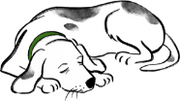
Doug
1 Tray of wet, 1 Cup of dry
per day
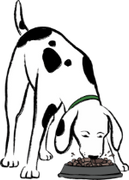
Max
2 Trays of wet
per day
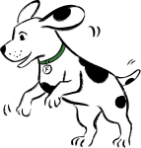
Dave
3 Cups of dry
per day
Daily (approx 2 trays)
+ and
Daily
Email Your Recommendations
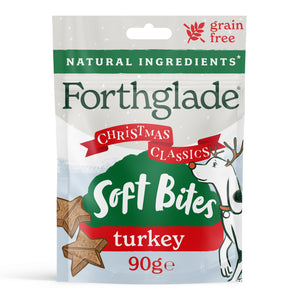
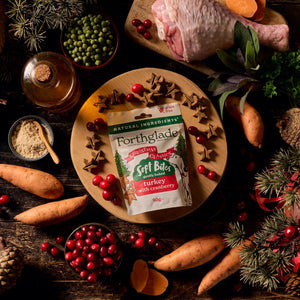


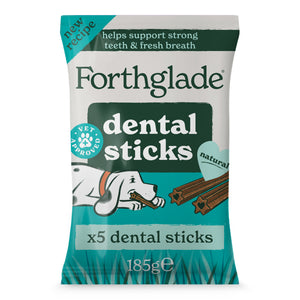

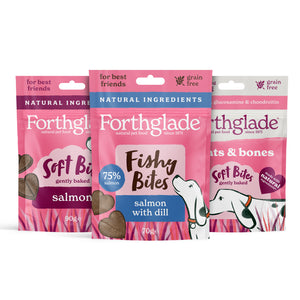
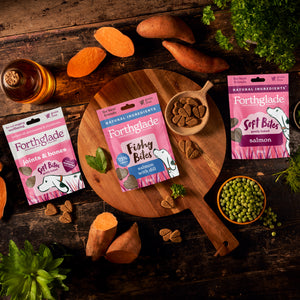
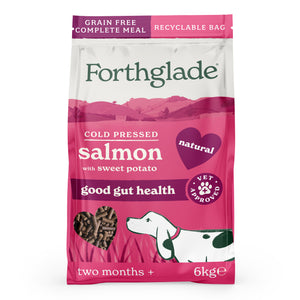
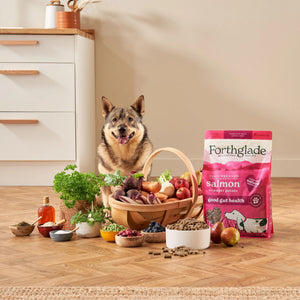
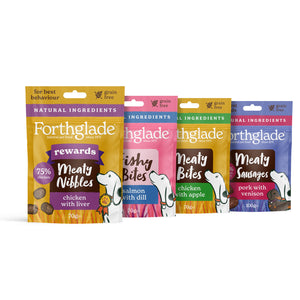
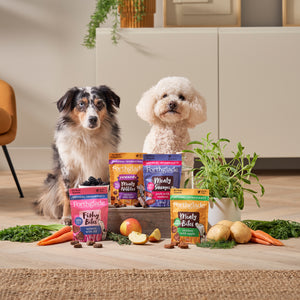


 Over 13,000 5* Reviews
Over 13,000 5* Reviews
 Subscribe & Save At Least 10% Off Every Order!
Subscribe & Save At Least 10% Off Every Order!

